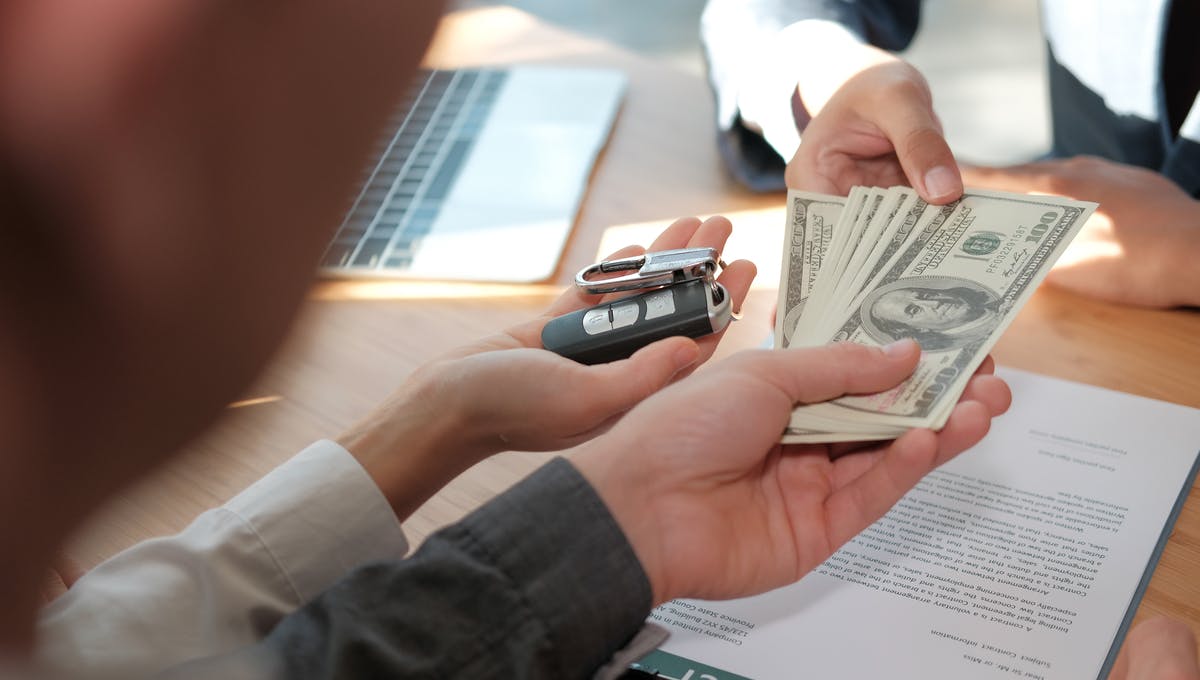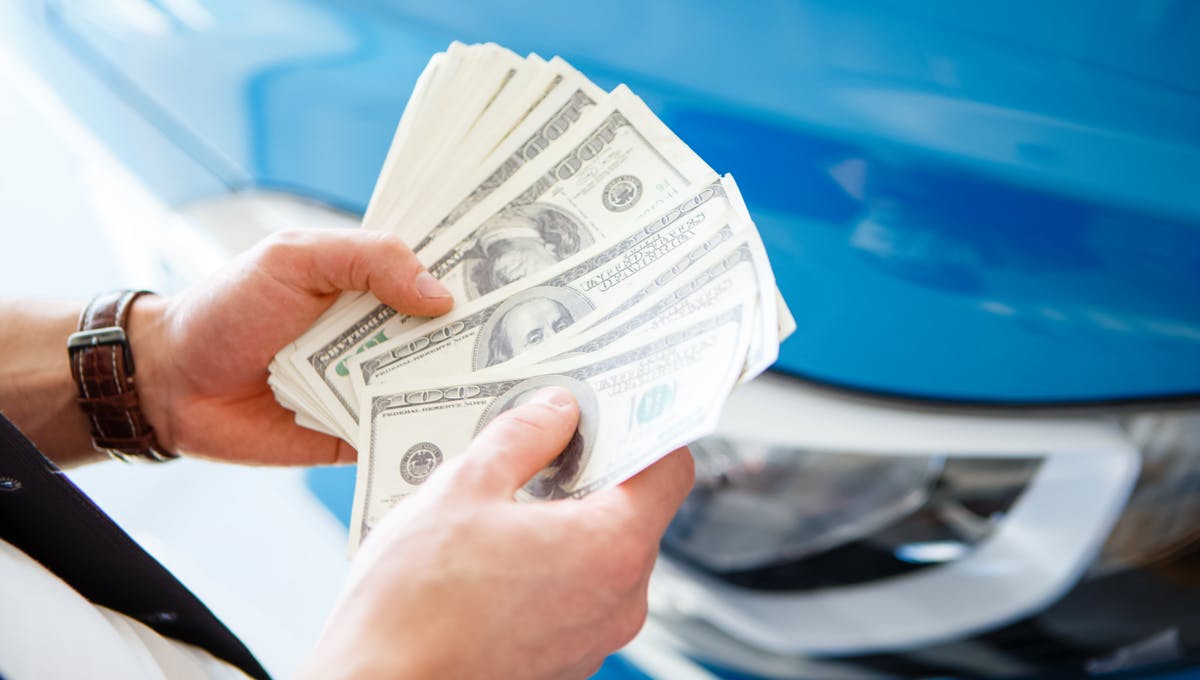How Much Cheaper Can You Buy a Car With Cash
Often our first thoughts when considering buying a car upfront is that it's not affordable.
With the average cost for a car in the UK between £12,000 and £28,000, it's certainly not an expense everyone can manage.
But with the potential for interest to significantly skyrocket the overall cost of your car, you could be better off spending those savings. In this guide to paying cash for a car, we'll look at what you need to consider, the pros and cons, and how to pay with cash.
If you already know paying upfront isn't for you, check out our "What is financing a car?" post for details on how you can spread out the cost of a car.

Can I pay cash for a car?
When dealers talk about paying for cash, they don't mean it literally. Nobody is expecting you to walk up to the dealership and hand over a suitcase full of notes like someone in a Mafia movie.
Dealerships most commonly deal with finance or card payments, so it's unlikely that they'll have the facilities to check the validity of notes or store them securely. Unless you've got a super cheap deal on a second hand car, when paying by "cash", it's expected that you'll use a cheque, debit card or bank transfer to pay.
If you opt for one of the latter two, it's important to check first whether you have a limit on your transactions. Letting your bank know in advance that you're going to make a large payment can help prevent it being blocked, and you're less likely to end up with a call from the fraud prevention squad.
You can also buy a car on a credit card as long as your credit limit covers the purchase. Just be sure to pay it off in a timely manner to avoid interest.
Pros and cons of paying cash for a car
Even more so than finance options, buying your car upfront can feel like a huge commitment. Since you're likely watching years worth of savings disappear, it's worth fully understanding the pros and cons.
Pros
-
One off payment - It's a lot of money to suddenly be without, but as you've covered the full cost of the car, you only have the car running costs to consider when budgeting going forward.
-
You own the car straight away - The car immediately belongs to you, so you can do whatever you like with it. You can paint it, modify it, or even sell it.
-
Most cost efficient option - You won't pay any interest or fees, so the price advertised is the only amount you pay.
-
Hassle-free - You won't have the stress of money coming out every month, or making sure you pay on time.
-
No restrictions - There's no waiting period until you own the car, so you don't have to adhere to mileage restrictions or rules imposed by the dealership.
-
Buy any car from anywhere - Getting a car on finance really limits you to dealerships or garages that offer finance methods. When you buy upfront, you can buy a used car, get your car from a private seller, or even buy a car online.
Cons
-
Depreciating asset - It's an unfortunate reality that your car begins to depreciate as soon as you leave the showroom. Your car can depreciate in value up to 35% in just the first year alone, so if you're expecting to make a return off your car, it's not very likely.
-
Large lump sum - It can be difficult to watch all the hard earned money just disappear from your account , especially if you rely on it as a backup for other expenses. You won't have this safety net to fall back on should you need it.
-
Limited to immediate budget - When using finance, it's possible to get a car that's slightly out of your budget, as you're spreading out the cost. However when you buy upfront, you're limited to what you can afford with the money that's in your account.
How to pay cash
If you want to pay for your car upfront, you're in luck. Buying a car with cash is probably one of the most straightforward means of getting your car, as there's very little to it. You simply pick out your car, visit the dealership or seller, and arrange your payment via cash, debit card or transfer.
Unless your car is relatively cheap, most dealerships will request that you pay by transfer. On top of the risk of walking around with thousands in wads of cash, dealerships are unlikely to have the capability to deal with it.

Alternatives to paying cash
Paying cash upfront is a fairly big commitment, so if you're not ready, or can't afford to part with so much money in one go, there are other ways to get your car.
Our post "Should I get a car on finance?" will help you narrow down your choices.
If you think finance is definitely the way to go for you, you've got four options: personal loan, leasing, Personal Contract Purchase, and Hire Purchase. Each gives you the opportunity to pay for the car you're driving over a couple of years, but they all operate differently:
- Using a personal loan could be a great alternative to buying outright as you'll still get to own your car right away, but have the benefit of spread out payments. We explore how to get a car loan if you're interested.
- With Hire Purchase, your total monthly payments cover the entire cost of the car (plus any interest), so by the end of the term, you're the legal owner. It's best suited to drivers that know they want to own the car eventually. See our guide to car hire purchase.
- PCP has a bit more flexibility, and is better for those on the fence about owning. You'll have an optional balloon payment at the end of the contract to own it, or you can just return the car (unlike lease purchase where you have to buy the car). Our "what is PCP finance" piece will help you learn more.
- Leasing means that you never actually own the car at all. The cost to lease a car covers its depreciation, so it usually works out to have the lowest monthly cost. It's ideal if you like a new car every couple of years, and don't want the hassle of buying and selling. Our guide "how does car leasing work" explains all.
If you just need help choosing between them, our comparison posts can help you identify the right one for you:
- Lease vs finance
- Lease or buy
- PCP vs HP
- PCP vs leasing
- PCP or bank loan
- PCP or buying outright
- PCP vs HP vs loan
- PCP vs HP vs lease
- Hire purchase or lease
- Lease purchase vs hire purchase
- Lease purchase vs PCP
- Lease vs lease purchase
If you're put off the idea of paying in cash and you think leasing is a potential route for you, you can compare personal car leasing or business car leasing deals with Lease Fetcher, the UK's first car lease comparison website.

Chloe is our resident wordsmith. If you're looking for car leasing tips and tricks, advice for car maintenance, or information about the latest car technology, Chloe writes easy-to-understand posts that cover all bases!
How Much Cheaper Can You Buy a Car With Cash
Source: https://www.leasefetcher.co.uk/guides/car-buying-guide/paying-cash-for-car
0 Response to "How Much Cheaper Can You Buy a Car With Cash"
Post a Comment